
Chaves: A Hidden Gem in Northern Portugal
Nestled in the northern region of Portugal, Chaves is a city that seamlessly blends history, culture, and natural beauty. Known for its Roman heritage, Chaves invites visitors to explore its ancient past while enjoying the comforts of modern amenities. The city's most iconic landmark, the Roman Bridge, has stood the test of time and continues to be a testament to the engineering prowess of the Romans. Walking across this bridge, you can't help but feel the weight of history beneath your feet. Beyond its historical landmarks, Chaves is also a haven for nature lovers. Surrounded by lush landscapes and the serene Tâmega River, the city offers numerous outdoor activities such as hiking, fishing, and bird watching. The thermal baths, which have been in use since Roman times, provide a unique way to relax and rejuvenate. The therapeutic waters are said to have healing properties, making them a must-visit for any traveler. Chaves is not just about its past; it is a vibrant city with a lively cultural scene. The local cuisine, heavily influenced by traditional Portuguese flavors, is a treat for the senses. From hearty stews to delicious pastries, the food alone is worth the trip. Festivals, markets, and local artisans add to the city's charm, ensuring that there is always something new to discover. Whether you're a history buff, a nature enthusiast, or a foodie, Chaves has something to offer everyone.
Local tips in Chaves
- Visit the Roman Bridge early in the morning to avoid crowds and enjoy a peaceful stroll.
- Don't miss the thermal baths; they are a unique experience and perfect for relaxation.
- Try local dishes like 'Pastéis de Chaves' and 'Presunto de Chaves' for an authentic taste of the region.
- Explore the local markets for fresh produce and handmade crafts.
- Wear comfortable shoes as the city's cobblestone streets can be uneven and require good footing.
Chaves: A Hidden Gem in Northern Portugal
Nestled in the northern region of Portugal, Chaves is a city that seamlessly blends history, culture, and natural beauty. Known for its Roman heritage, Chaves invites visitors to explore its ancient past while enjoying the comforts of modern amenities. The city's most iconic landmark, the Roman Bridge, has stood the test of time and continues to be a testament to the engineering prowess of the Romans. Walking across this bridge, you can't help but feel the weight of history beneath your feet. Beyond its historical landmarks, Chaves is also a haven for nature lovers. Surrounded by lush landscapes and the serene Tâmega River, the city offers numerous outdoor activities such as hiking, fishing, and bird watching. The thermal baths, which have been in use since Roman times, provide a unique way to relax and rejuvenate. The therapeutic waters are said to have healing properties, making them a must-visit for any traveler. Chaves is not just about its past; it is a vibrant city with a lively cultural scene. The local cuisine, heavily influenced by traditional Portuguese flavors, is a treat for the senses. From hearty stews to delicious pastries, the food alone is worth the trip. Festivals, markets, and local artisans add to the city's charm, ensuring that there is always something new to discover. Whether you're a history buff, a nature enthusiast, or a foodie, Chaves has something to offer everyone.
When is the best time to go to Chaves?
Iconic landmarks you can’t miss
Castelo de Chaves
Explore the enchanting Castelo de Chaves, a historic castle in Portugal offering breathtaking views and a captivating journey through medieval history.
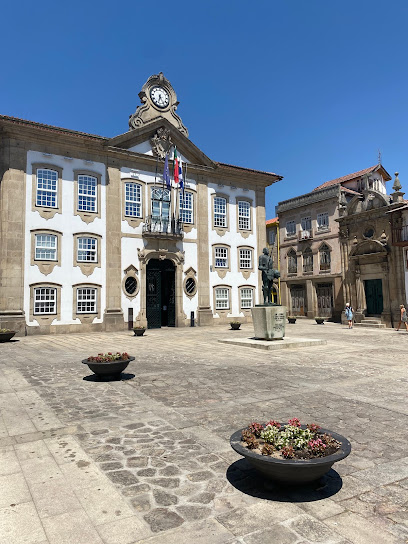
Trajano Bridge
Experience the ancient charm of Trajano Bridge in Chaves, Portugal—a stunning blend of history and natural beauty.
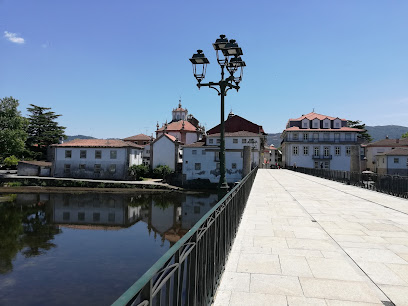
Forte de São Francisco Hotel Chaves
Discover the rich heritage and luxurious comfort of Forte de São Francisco Hotel Chaves, a perfect retreat in the heart of Portugal.
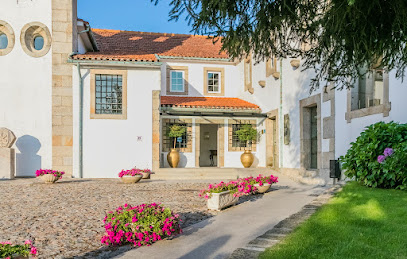
Ibis Styles Chaves
Experience comfort and convenience at Ibis Styles Chaves, your perfect base for exploring the historic charm and natural beauty of Chaves, Portugal.
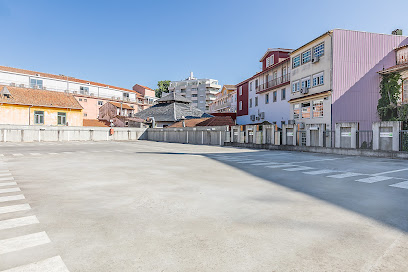
Largo do Terreiro de Cavalaria (Jardim do Bacalhau)
Explore the serene beauty of Largo do Terreiro de Cavalaria, a historical park in Chaves, Portugal, perfect for relaxation and nature lovers.
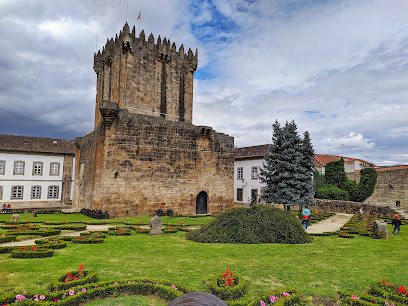
Bobadela de Monforte Chaves
Experience the natural beauty and cultural heritage of Bobadela de Monforte Chaves, a hidden gem in Portugal perfect for peaceful retreats and exploration.
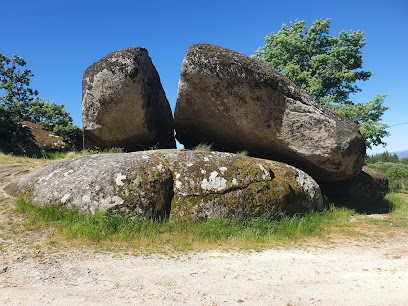
Núcleo Museológico Ferroviário de Chaves
Discover the enchanting history of railways at the Núcleo Museológico Ferroviário de Chaves, where heritage and innovation meet in a captivating museum experience.
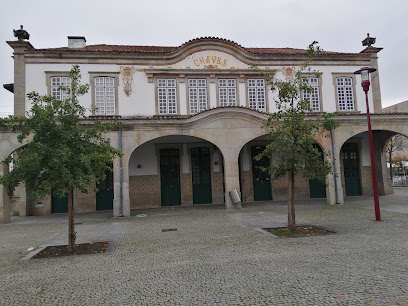
Castle of Santo Estêvão
Explore the majestic Castle of Santo Estêvão, a historical gem in Portugal with stunning views and rich stories waiting to be discovered.
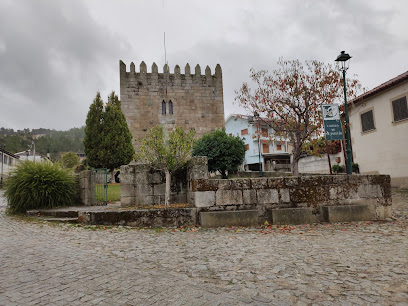
Church São João de Deus
Explore the captivating beauty and serene ambiance of Church São João de Deus in Chaves, a hidden gem in Portugal's rich cultural landscape.
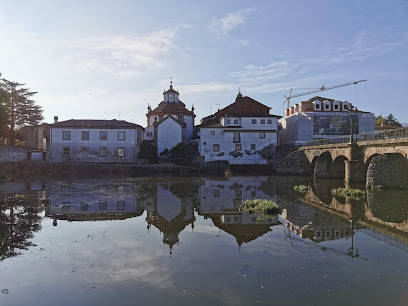
Castelões (Chaves)
Explore the historical allure of Castelões in Chaves, a captivating landmark steeped in Portugal's rich heritage and stunning landscapes.
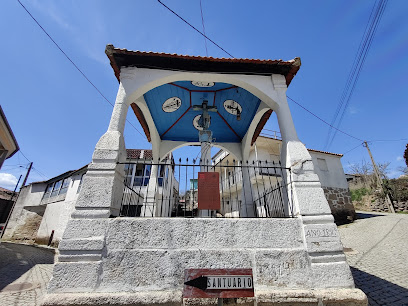
Museu da Região Flaviense
Explore the rich history and cultural heritage of Chaves at the Museu da Região Flaviense – a must-visit destination for every traveler.
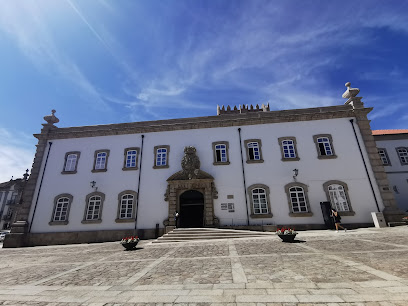
Forte de São Francisco - Forte de Nossa Senhora do Rosário
Explore the historic Forte de São Francisco in Chaves, Portugal – a stunning fortress rich in history and breathtaking views.
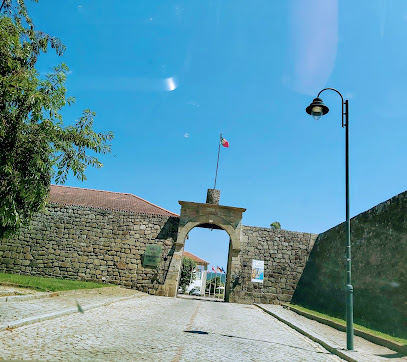
Monumento Nome Chaves
Explore the Monumento Nome Chaves, a historical gem in Chaves, Portugal, showcasing stunning architecture and rich cultural heritage.
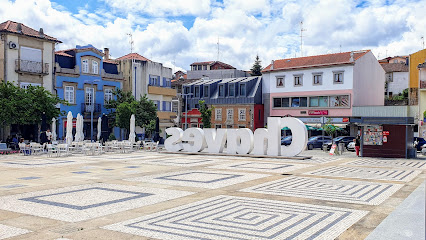
Casco Histórico de Chaves
Discover the charm of Chaves at the Casco Histórico, a historical landmark brimming with culture, architecture, and traditional Portuguese cuisine.
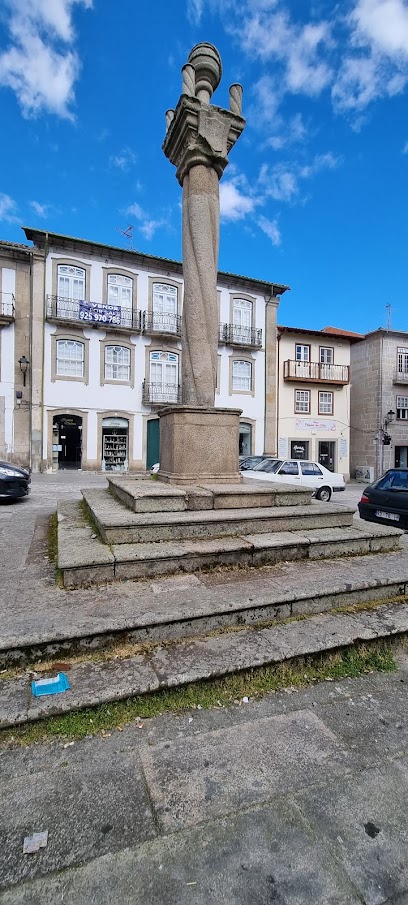
Monumento aos Heróis de Chaves
Explore the Monumento aos Heróis de Chaves, a historic tribute in Portugal, where valor and beauty meet in a serene landscape.
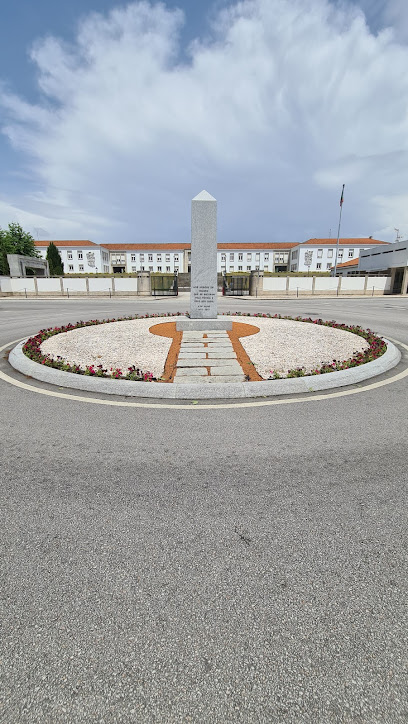
Unmissable attractions to see
Castelo de Chaves
Discover the rich history and stunning architecture of Castelo de Chaves, a medieval fortress in the heart of Portugal, offering breathtaking views and fascinating stories.
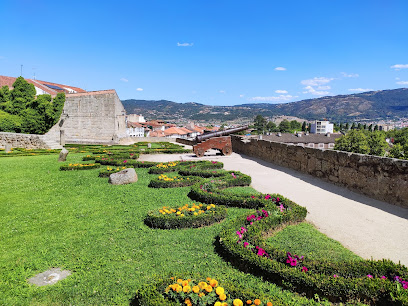
Trajano Bridge
Explore the Trajano Bridge in Chaves, Portugal: A stunning Roman structure blending history with breathtaking views.
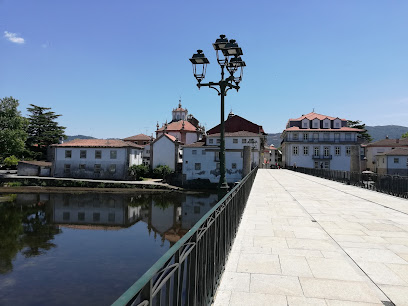
Pena Aventura
Experience the thrill of adventure and family fun at Pena Aventura, the ultimate amusement park in Ribeira de Pena, Portugal.
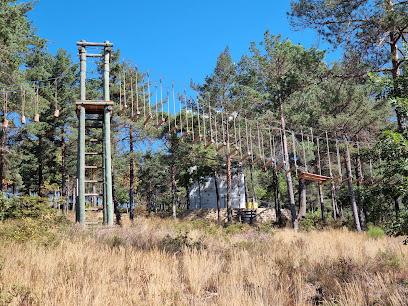
Parque Natural do Alvão
Explore the breathtaking landscapes and rich biodiversity of Parque Natural do Alvão, a serene escape in Portugal's stunning nature preserve.
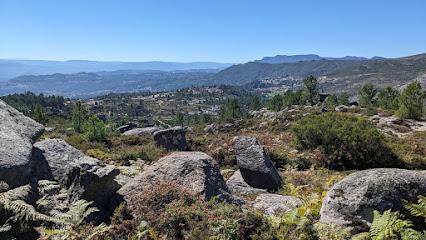
Fisgas de Ermelo
Explore the breathtaking beauty of Fisgas de Ermelo, a hidden hiking paradise in Portugal with stunning views and serene landscapes.
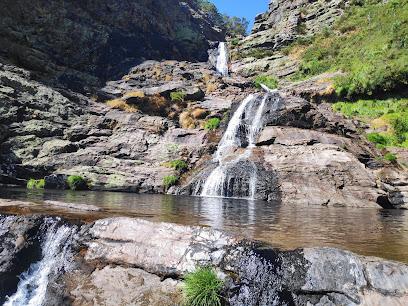
Cascata de Cela Cavalos
Experience the breathtaking beauty of Cascata de Cela Cavalos, a serene waterfall in Outeiro, perfect for nature lovers and tranquility seekers.
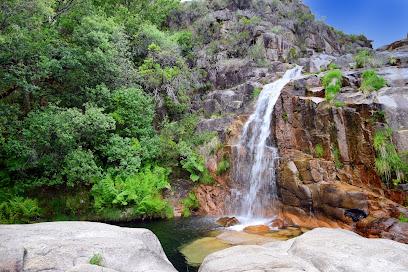
Museu Ferroviário do Arco de Baúlhe
Explore the captivating history of railways at Museu Ferroviário do Arco de Baúlhe, a must-visit museum in Portugal for history and transport enthusiasts.
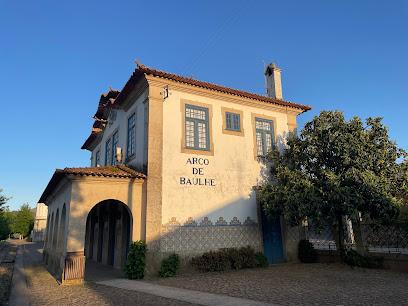
Cascata De Pincães
Experience the enchanting beauty of Cascata De Pincães, a breathtaking waterfall in Portugal that's perfect for nature lovers and photographers.
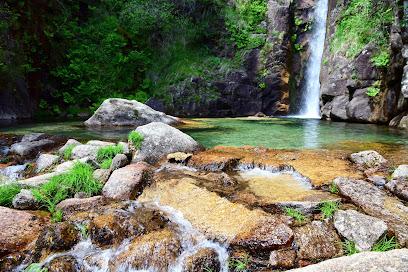
Estrada Nacional 2, Km 0 (Chaves)
Discover the scenic Estrada Nacional 2 in Chaves, Portugal, a traveler’s paradise filled with stunning landscapes and rich cultural experiences.
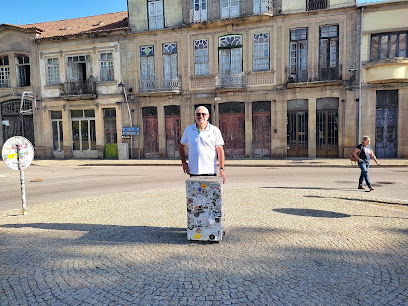
Igreja Matriz de Santa Maria Maior
Explore the stunning Igreja Matriz de Santa Maria Maior in Chaves, a beautiful Catholic church filled with history and architectural beauty.
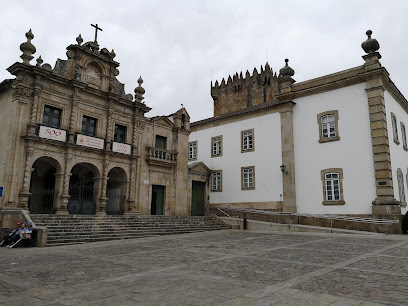
Bobadela de Monforte Chaves
Experience the serene charm of Bobadela de Monforte Chaves, a captivating tourist destination nestled in Portugal's stunning landscapes.
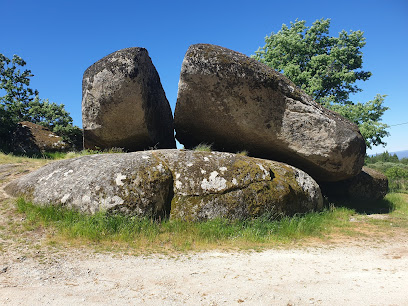
Miradouro dos Contrabandistas - Baloiço São Caetano
Discover the breathtaking views at Miradouro dos Contrabandistas, a must-visit scenic overlook in Portugal's stunning countryside.
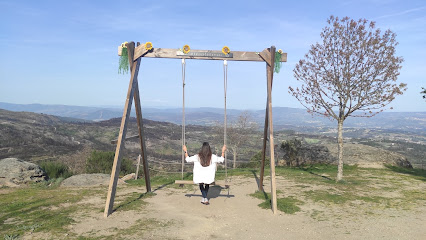
Castle Monforte de Rio Livre
Explore Castle Monforte de Rio Livre: A hidden gem in Portugal offering breathtaking views and rich medieval history for every traveler.
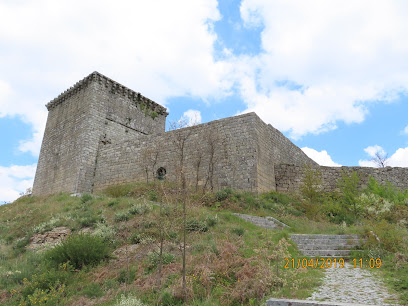
Núcleo Museológico Ferroviário de Chaves
Explore the rich history of Portuguese railways at Núcleo Museológico Ferroviário de Chaves, a captivating museum in the charming town of Chaves.
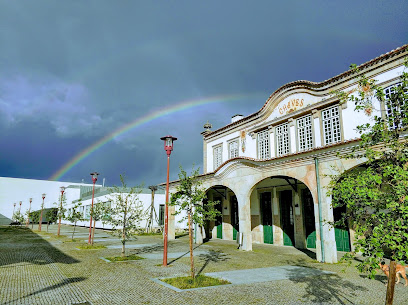
Misericordia Church
Explore the architectural beauty and spiritual heritage of Misericordia Church in Chaves, a serene landmark in Portugal's historical landscape.
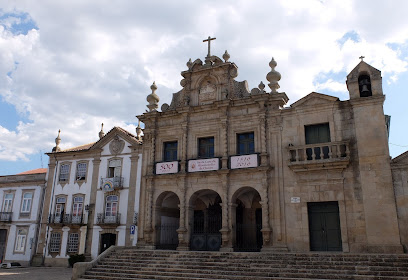
Essential places to dine
A Restaurante Pensão Flávia
Experience authentic Portuguese cuisine in Chaves at Restaurante Pensão Flávia - where tradition meets flavor.
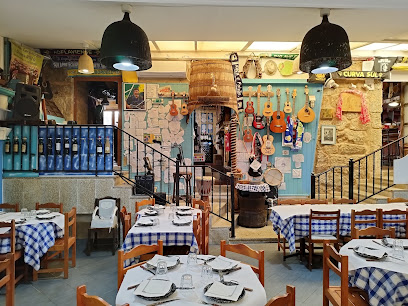
Taberna Benito
Experience authentic Portuguese cuisine at Taberna Benito in Chaves – where every dish tells a story.
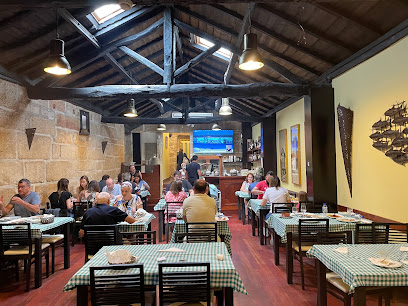
Restaurante Miradouro
Experience authentic Portuguese cuisine with stunning views at Restaurante Miradouro in Chaves.
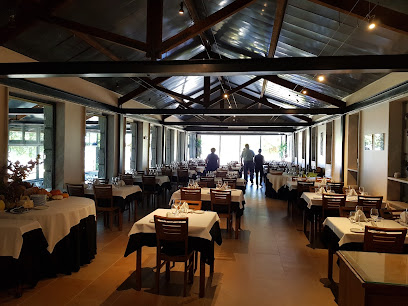
Adega Faustino
Discover the heart of Portuguese cuisine at Adega Faustino in Chaves – where tradition meets flavor in every dish.
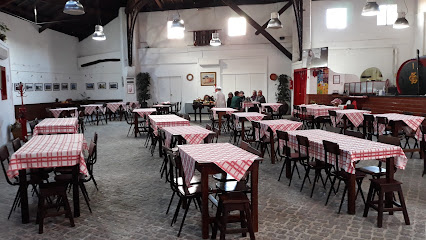
Rest Carvalho
Discover authentic Portuguese flavors at Rest Carvalho in Chaves - a delightful dining destination offering exquisite dishes and local wines.
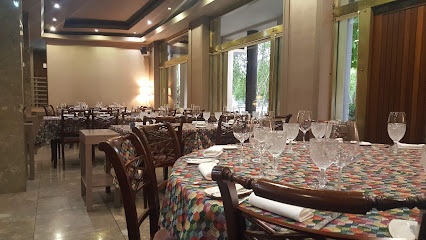
Mister Prego
Discover the flavors of Portugal at Mister Prego in Chaves – where delicious sandwiches meet warm hospitality.
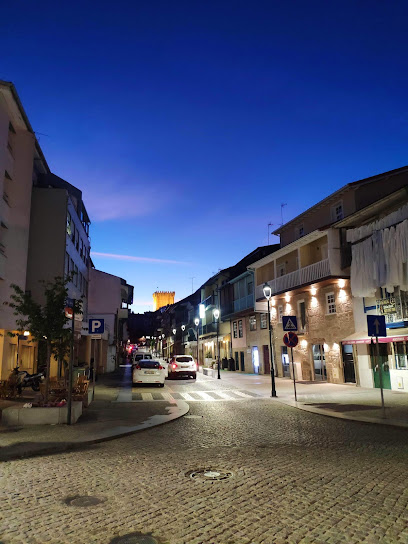
O Lavrador
Discover authentic Portuguese flavors at O Lavrador in Chaves - where tradition meets taste in every dish.
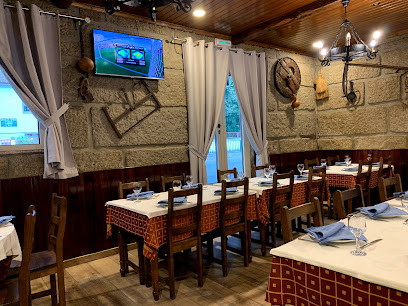
Quinta da Cera
Discover the rich flavors of Portugal at Quinta da Cera, where traditional cuisine meets cozy ambiance in Chaves.
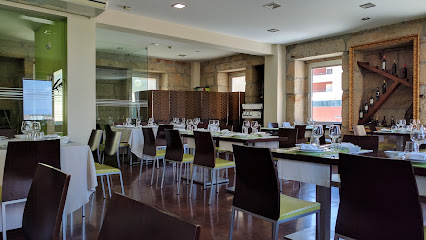
Tomate Azul - Francesinhas
Discover authentic Portuguese cuisine at Tomate Azul - Francesinhas in Chaves, where every bite tells a story of tradition.
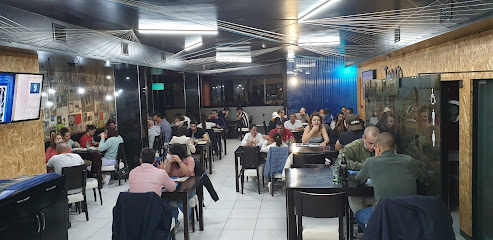
Leitões.come
Experience authentic Portuguese cuisine at Leitões.come in Chaves - renowned for its exquisite roasted piglet and warm hospitality.
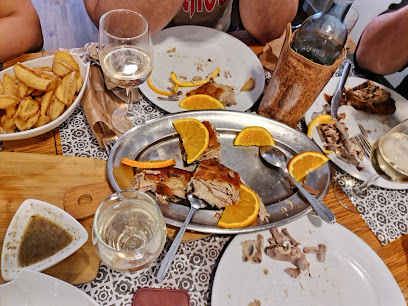
Taska das Caldas
Discover the flavors of Portugal at Taska das Caldas - where tradition meets taste in Chaves.
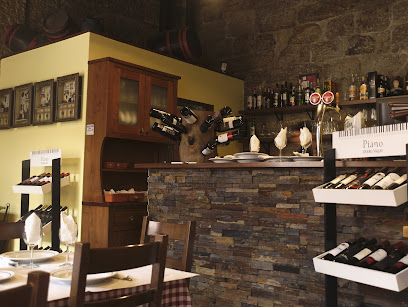
3 Cozinhas
Discover authentic Portuguese flavors at 3 Cozinhas in Chaves - where every meal is a celebration of local culinary traditions.
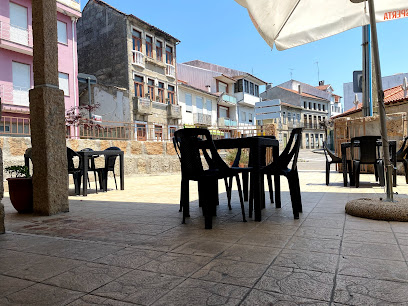
A Talha - João Padrela dos Santos Monteiro
Experience authentic Portuguese flavors at A Talha in Chaves – where culinary tradition meets modern dining.
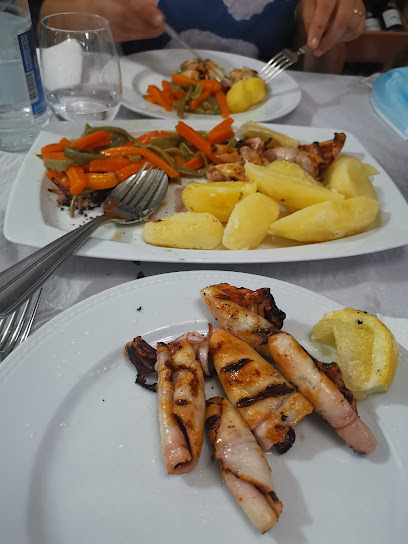
Museu do Bacalhau
Explore Portugal's culinary roots at Museu do Bacalhau, where every dish tells a story about the country's beloved codfish tradition.
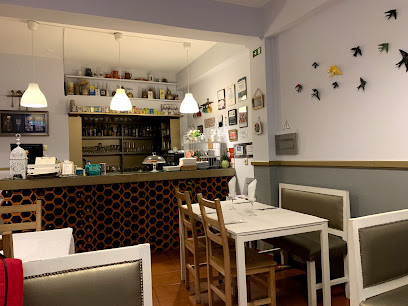
Biclaque Trajano
Discover Biclaque Trajano in Chaves: A delightful fusion of bagels and fresh produce awaits food lovers.
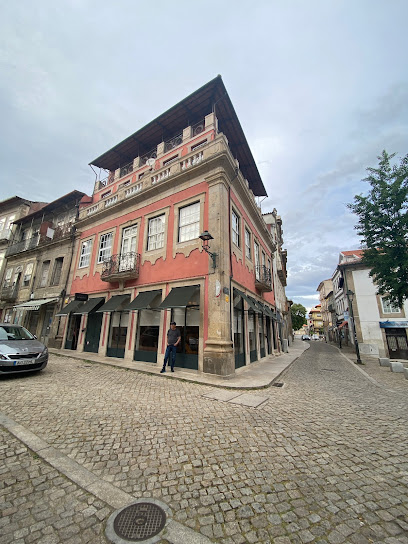
Markets, malls and hidden boutiques
Armazéns Europa - Comércio Geral, Lda
Explore a diverse selection of clothing and local goods at Armazéns Europa, a vibrant department store in Chaves, Portugal.
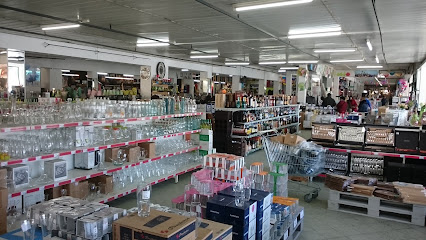
Retail Park Quinta do Caneiro
Discover the ultimate shopping experience at Retail Park Quinta do Caneiro in Chaves, where diverse stores and delicious eateries await.
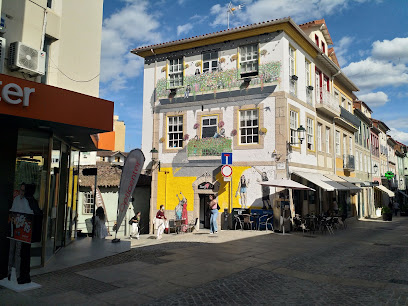
Avela
Savor the best crêpes in Chaves at Avela, where delightful flavors and a cozy atmosphere await every tourist.
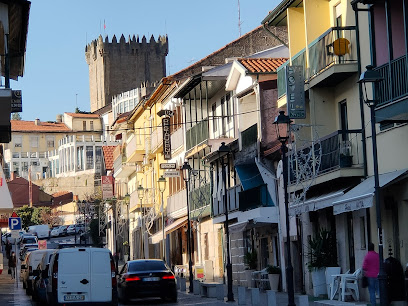
Bricomarché Chaves
Discover diverse home goods at Bricomarché Chaves, a vibrant shopping destination in the heart of Portugal, perfect for souvenirs and essentials.
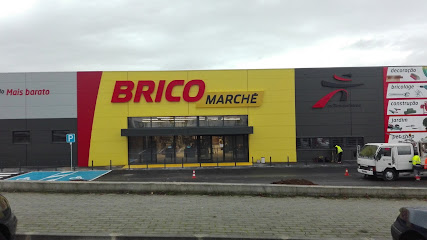
AKI Chaves
Discover a world of home improvement solutions at AKI Chaves, where quality meets convenience for every DIY enthusiast.
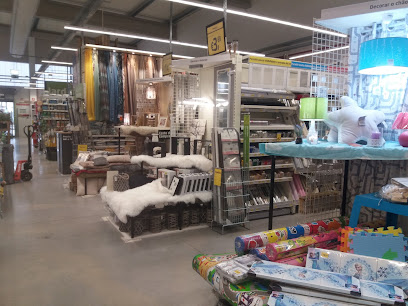
Sport Zone Chaves
Discover the ultimate sportswear destination at Sport Zone Chaves, where quality meets adventure in the heart of Portugal.
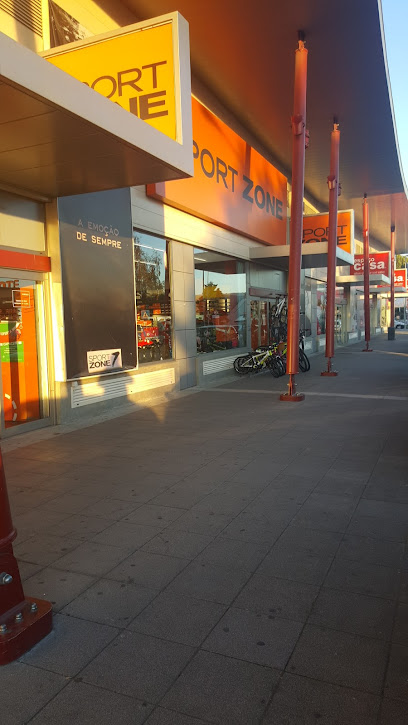
O CELEIRO - Produtos Regionais & Tapas
Explore O CELEIRO in Chaves for a unique selection of regional products and delicious tapas, showcasing the best of local culinary traditions.
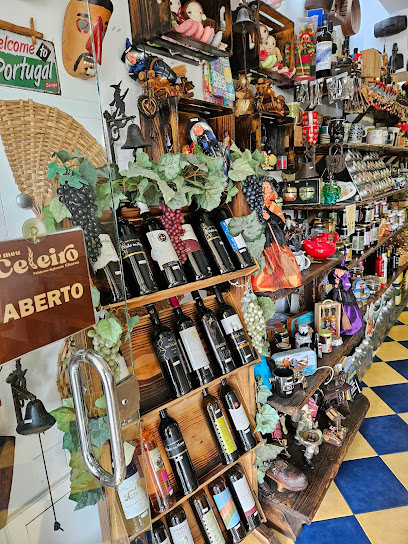
Zagari - Jewelry and Perfumes, Lda.
Explore the charm of Chaves at Zagari, where exquisite jewelry and enchanting perfumes await to captivate your senses.
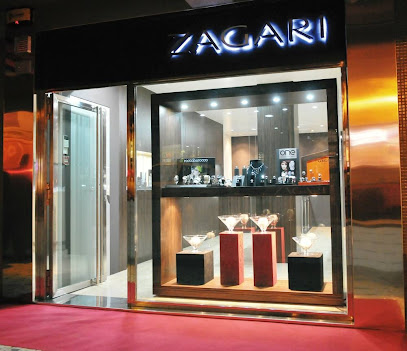
Base Chaves
Discover top-quality sportswear at Base Chaves, the premier destination for fitness enthusiasts in Chaves, Portugal.
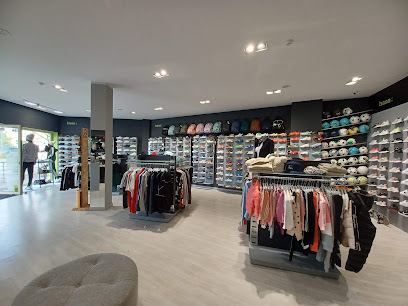
hôma Chaves: Decoração, Mobiliário, Cozinha, Arrumação
Explore hôma Chaves for stylish home furnishings and essentials that elevate your living space during your visit to this charming Portuguese town.
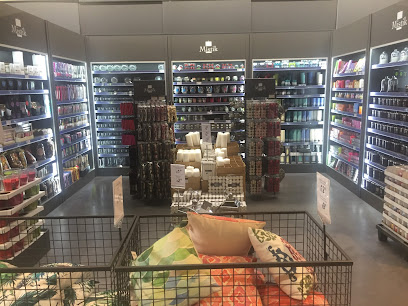
ARMAZÉNS CATONHO TONHO LDA
Explore Armazéns Catonho Tonho Lda, Chaves' premier home goods store, where local craftsmanship meets delightful shopping!
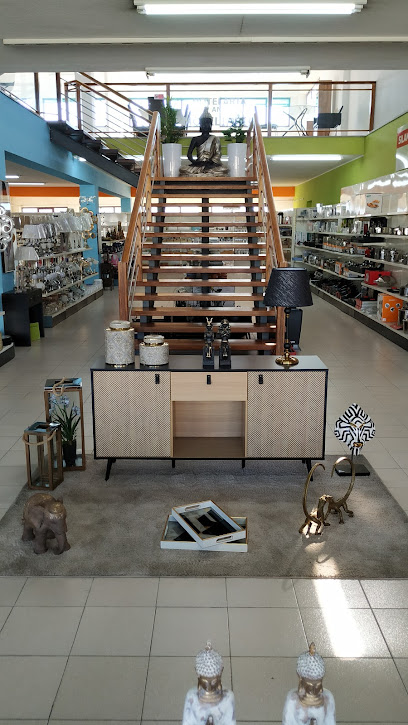
Benetton Chaves
Discover the vibrant world of fashion at Benetton Chaves, where style meets creativity in the heart of Portugal.
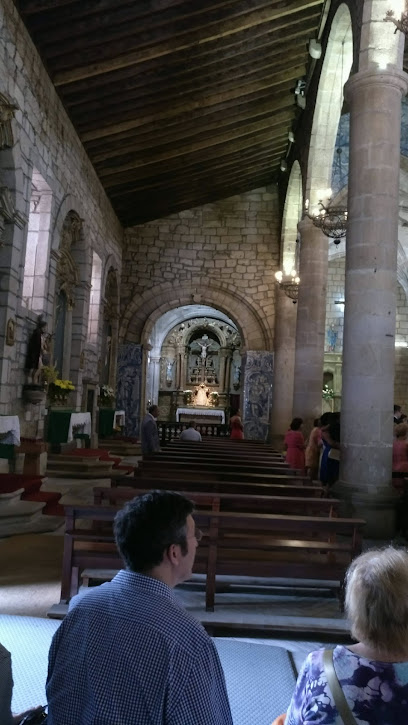
Calzedonia
Discover stylish swimwear and children's clothing at Calzedonia, a fashionable clothing store in the heart of Chaves, Portugal.
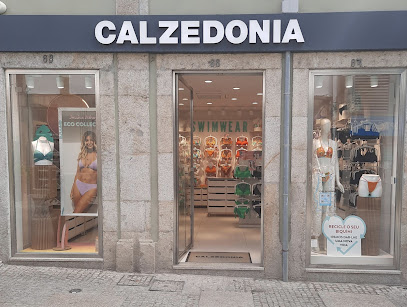
Galtamega - Comercio De Pronto A Vestir, Lda.
Explore Galtamega in Chaves for trendy apparel and a unique shopping experience that enhances your travel adventure.
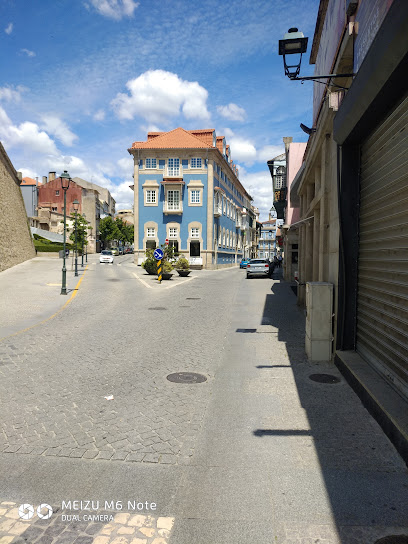
Prazeres da Terra - Chaves Store
Discover authentic Portuguese products and artisanal treasures at Prazeres da Terra, the charming store in Chaves, Portugal.
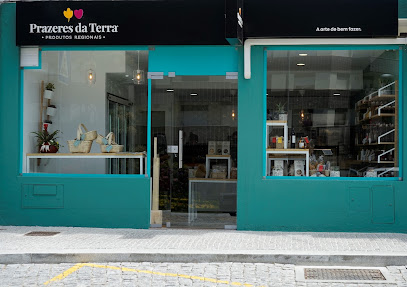
Essential bars & hidden hideouts
Ilha do Cavaleiro
Experience the vibrant nightlife of Ilha do Cavaleiro, where exquisite cocktails and a lively atmosphere await in Chaves, Portugal.
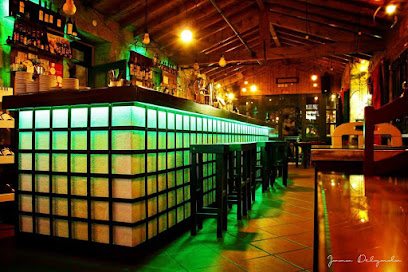
Kilometrozero
Discover the lively ambiance of Kilometrozero, a must-visit bar in Chaves, offering a unique blend of drinks and local culture.
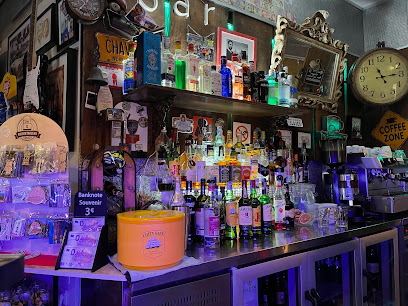
Sky Bar
Discover the vibrant Sky Bar in Chaves, where stunning views and delightful drinks create the perfect atmosphere for any occasion.
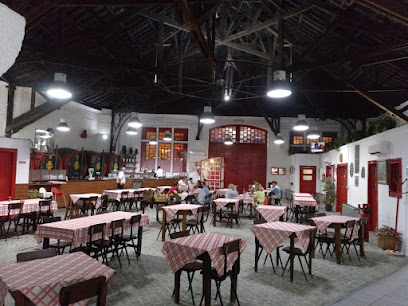
Gold Bar
Discover Gold Bar in Chaves - a lively bar with a welcoming atmosphere, perfect for drinks and socializing in the heart of Portugal.
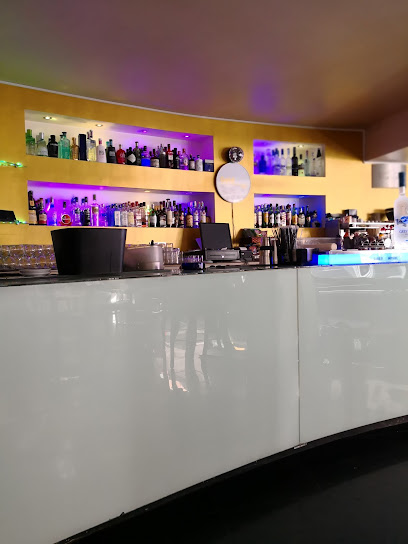
Twin’s Bar
Experience the vibrant nightlife at Twin’s Bar in Chaves, where cozy ambiance meets exceptional drinks and local culture.
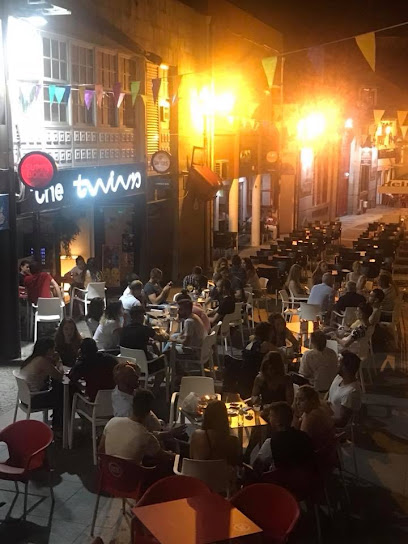
Memórias nas Caldas
Experience the vibrant atmosphere and authentic Portuguese cuisine at Memórias nas Caldas in Chaves, a must-visit destination for travelers.
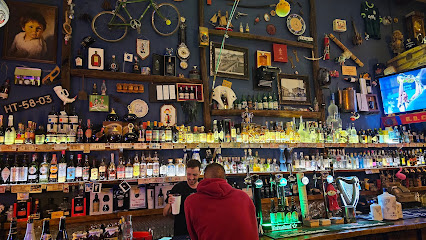
Bar Calhambeque
Experience the charm of Bar Calhambeque in Chaves, where local flavors and a cozy atmosphere meet for a perfect getaway.
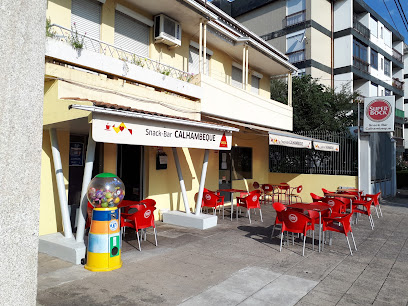
Holliday`s Bar
Discover the vibrant charm of Holliday's Bar in Chaves, where local flavors and friendly vibes await every visitor.
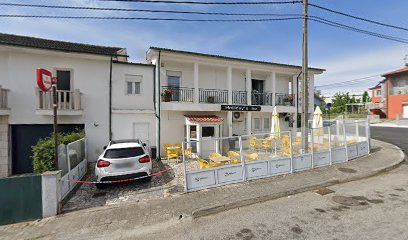
Mex Bar
Discover the vibrant atmosphere of Mex Bar in Chaves, where locals and tourists gather for refreshing drinks and unforgettable experiences.
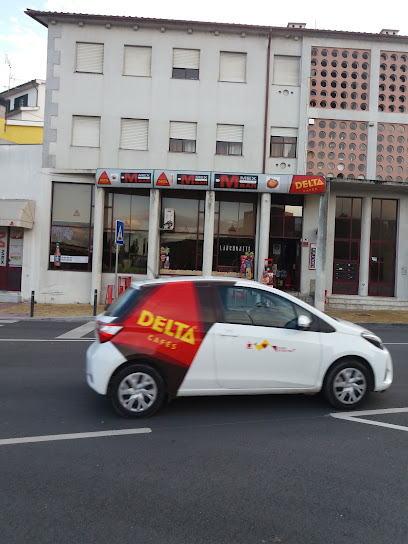
AFTER BAR Chaves
AFTER BAR Chaves: Your Go-To Spot for Exquisite Drinks and a Lively Night Out in Chaves, Portugal.
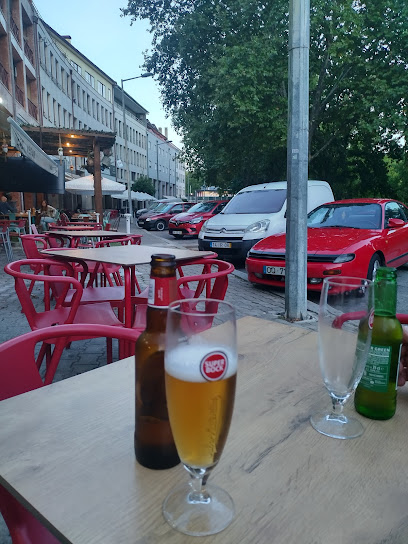
1/4 Escuro Bar
Discover the heart of Chaves nightlife at 1/4 Escuro Bar, a cozy spot with live music and an extensive drink selection.
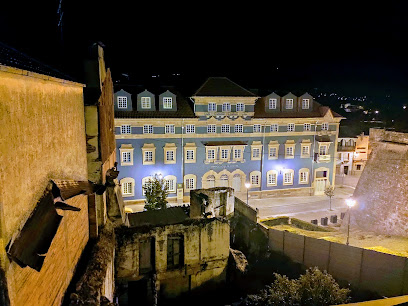
Platz
Discover the vibrant nightlife of Chaves at Platz, a bar that offers local drinks, a lively atmosphere, and a chance to mingle with fellow travelers.
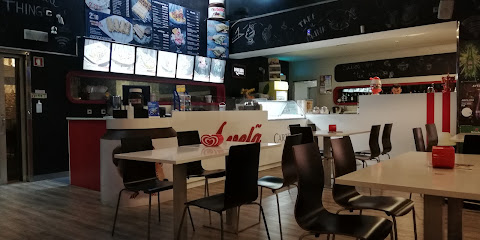
Shine Bar
Discover the vibrant nightlife at Shine Bar in Chaves, where cocktails meet camaraderie and unforgettable moments await.
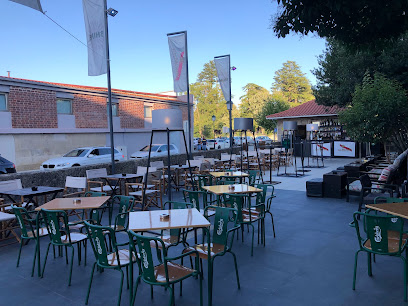
Aqua Lounge
Discover Aqua Lounge, Chaves' vibrant bar, where refreshing drinks and a lively atmosphere await your visit.
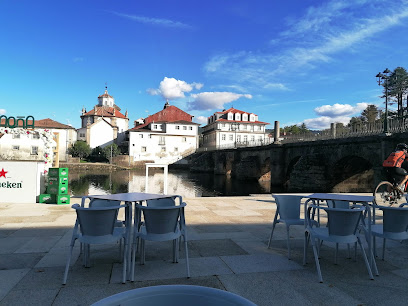
Local Phrases
-
- HelloOlá
[oh-lah] - GoodbyeAdeus
[ah-deh-oosh] - YesSim
[seem] - NoNão
[now] - Please/You're welcomePor favor/De nada
[poor fah-vohr/deh nah-dah] - Thank youObrigado
[oh-bree-gah-doo] - Excuse me/SorryDesculpe/Desculpa
[deh-skool-peh/deh-skool-pah] - How are you?Como está?
[koh-moh ehs-tah] - Fine. And you?Bem. E você?
[behn/eh voh-seh] - Do you speak English?Fala inglês?
[fah-lah een-glehsh] - I don't understandNão entendo
[now ehn-tehndoo]
- HelloOlá
-
- I'd like to see the menu, pleaseGostaria de ver o menu, por favor
[goh-stah-ree-ah deh vehr oo meh-noo/poor fah-vohr] - I don't eat meatNão como carne
[now koh-moo kahr-neh] - Cheers!Saúde!
[sow-deh] - I would like to pay, pleaseGostaria de pagar, por favor
[goh-stah-ree-ah deh pah-gahr/poor fah-vohr]
- I'd like to see the menu, pleaseGostaria de ver o menu, por favor
-
- Help!Ajuda!
[ah-zoo-dah] - Go away!Vai embora!
[vah-ee ehm-boh-rah] - Call the Police!Chame a Polícia!
[shah-meh ah poh-lee-see-ah] - Call a doctor!Chame um médico!
[shah-meh oom meh-dee-koo] - I'm lostEstou perdido
[ehs-toh pehr-dee-doo] - I'm illEstou doente
[ehs-toh doo-ehn-teh]
- Help!Ajuda!
-
- I'd like to buy...Queria comprar...
[keh-ree-ah kohm-prahr] - I'm just lookingEstou só a ver
[ehs-toh soh ah vehr] - How much is it?Quanto custa?
[koo-ahn-toh koosh-tah] - That's too expensiveIsso é muito caro
[ee-soh eh moo-ee-toh kahr-oo] - Can you lower the price?Pode baixar o preço?
[poh-deh by-shahr oo preh-soo]
- I'd like to buy...Queria comprar...
-
- What time is it?Que horas são?
[keh oh-rah shao] - It's one o'clockÉ uma hora
[eh oo-mah oh-rah] - Half past (10)Meio-dia e meia
[may-oh dee-ah eh may-ah] - MorningManhã
[mah-nyah] - AfternoonTarde
[tahr-d] - EveningNoite
[noy-cheh] - YesterdayOntem
[ohn-tehm] - TodayHoje
[oh-zheh] - TomorrowAmanhã
[ah-mah-nyah] - 1Um
[oom] - 2Dois
[doh-ees] - 3Três
[trehsh] - 4Quatro
[kwah-troh] - 5Cinco
[seeng-koh] - 6Seis
[saysh] - 7Sete
[seh-teh] - 8Oito
[oy-toh] - 9Nove
[noh-veh] - 10Dez
[dehz]
- What time is it?Que horas são?
-
- Where's a/the...?Onde fica o/a...?
[ohn-deh fee-kah oo/ah] - What's the address?Qual é o endereço?
[kwahl eh oo ehn-day-reh-soo] - Can you show me (on the map)?Pode mostrar-me (no mapa)?
[poh-deh moh-shtr-meh (noo mah-pah)] - When's the next (bus)?Quando é o próximo (autocarro)?
[kwan-doo eh oo proh-ksee-moh (ow-toh-kah-roo)] - A ticket (to ....)Um bilhete (para ...)
[oom bee-lyeh-teh (pah-rah)]
- Where's a/the...?Onde fica o/a...?
History of Chaves
-
Chaves, originally known as Aquae Flaviae, was established by the Romans in the 1st century AD. The city's name, Aquae Flaviae, signifies the therapeutic hot springs that were discovered by Emperor Flavius Vespasianus. The Romans constructed impressive thermal baths and a grand bridge over the Tâmega River, which still stands today as a testament to their engineering prowess.
-
In the medieval period, Chaves gained strategic importance due to its proximity to the Spanish border. The Castle of Chaves, built during the 9th and 10th centuries, was a key defensive structure. It was expanded and fortified by King Denis of Portugal in the 13th century. The castle’s imposing keep and walls provided protection and served as a military stronghold during various conflicts.
-
The Napoleonic Wars left a significant mark on Chaves. In 1809, the city was a battleground during the Peninsular War. Portuguese forces, led by General Francisco da Silveira, successfully defended the city against the French troops commanded by Marshal Soult. This victory was crucial in boosting Portuguese morale and resistance against the French invasion.
-
Chaves is renowned for its hot springs, which have been utilized for their therapeutic properties since Roman times. The thermal baths were revitalized in the 19th century, attracting visitors seeking health benefits. The modern spa facilities continue to draw tourists, making the thermal baths a central aspect of Chaves' cultural and economic life.
-
The Church of Santa Maria Maior, also known as the Chaves Cathedral, is a significant cultural and religious landmark. Originally built in the 12th century, the church features Romanesque and Gothic architectural elements. It has been a focal point of religious life in Chaves, reflecting the city's historical and spiritual legacy.
-
Chaves is famous for its rich culinary traditions. The city’s gastronomy includes specialties such as 'Pastéis de Chaves,' a type of pastry filled with minced meat, and 'Presunto de Chaves,' a highly prized cured ham. The local cuisine, deeply rooted in regional produce and traditional recipes, offers a unique taste of Northern Portugal's culinary heritage.
Chaves Essentials
-
Chaves is located in the northern region of Portugal, close to the Spanish border. The nearest international airport is Francisco Sá Carneiro Airport in Porto, approximately 150 kilometers away. From Porto, you can rent a car or take a bus to Chaves. The journey by car takes around 1.5 to 2 hours via the A24 motorway. There are also regular bus services connecting Porto to Chaves with a travel time of about 2.5 to 3 hours.
-
Chaves is a relatively small city, and many of its attractions can be explored on foot. For longer distances, taxis are readily available and reasonably priced. There is a public bus system that connects different parts of the city and surrounding areas. Car rentals are also an option for those wishing to explore the scenic countryside and nearby attractions at their own pace.
-
The official currency in Portugal is the Euro (EUR). Credit and debit cards are widely accepted in hotels, restaurants, and shops. It is advisable to carry some cash, especially for smaller establishments or market purchases. ATMs are readily available throughout Chaves, and most offer instructions in multiple languages.
-
Chaves is generally a safe city for tourists, with low crime rates. However, as with any travel destination, it is important to take standard precautions. Be aware of your surroundings, especially in crowded places, and avoid displaying valuables openly. There are no specific areas in Chaves known for high crime rates targeting tourists, but it is always best to stay vigilant.
-
In case of emergency, dial 112 for immediate assistance. This number connects you to police, fire, and medical services. The local hospital, Hospital de Chaves, provides medical care and emergency services. Pharmacies are available throughout the city for minor health issues and over-the-counter medications. It is recommended to have travel insurance that covers medical emergencies.
-
Fashion: Do dress comfortably but modestly. Avoid overly revealing clothing, especially when visiting religious sites. Religion: Do respect religious customs and dress codes when entering churches. Public Transport: Do be courteous and offer your seat to elderly passengers. Do not eat or drink on public transport. Greetings: Do greet people with a handshake or a friendly 'Olá'. Eating & Drinking: Do try local delicacies and accept food and drink offerings graciously. Do not refuse hospitality, as it is considered impolite.
-
To experience Chaves like a local, visit the weekly market, Mercado de Chaves, held on Saturdays, where you can buy fresh produce and regional products. Make sure to try the local specialty, Pastel de Chaves, a savory pastry filled with meat. Engage with locals at cafes and learn about the city's history and culture. Don't miss the Roman Bridge and the thermal baths, which are a significant part of Chaves' heritage.
Trending Landmark in Chaves
-
Castelo de Chaves
-
Trajano Bridge
-
Forte de São Francisco Hotel Chaves
-
Ibis Styles Chaves
-
Largo do Terreiro de Cavalaria (Jardim do Bacalhau)
-
Bobadela de Monforte Chaves
-
Núcleo Museológico Ferroviário de Chaves
-
Castle of Santo Estêvão
-
Church São João de Deus
-
Castelões (Chaves)
-
Museu da Região Flaviense
-
Forte de São Francisco - Forte de Nossa Senhora do Rosário
-
Monumento Nome Chaves
-
Casco Histórico de Chaves
-
Monumento aos Heróis de Chaves
Nearby Cities to Chaves
-
Things To Do in Vila Real
-
Things To Do in Bragança
-
Things To Do in Guimarães
-
Things To Do in Lamego
-
Things To Do in Braga
-
Things To Do in Ponte de Lima
-
Things To Do in Viana do Castelo
-
Things To Do in Porto
-
Things To Do in Aveiro
-
Things To Do in Santiago de Compostela
-
Things To Do in Salamanca
-
Things To Do in Coimbra
-
Things To Do in Oviedo
-
Things To Do in Valladolid
-
Things To Do in Tomar










